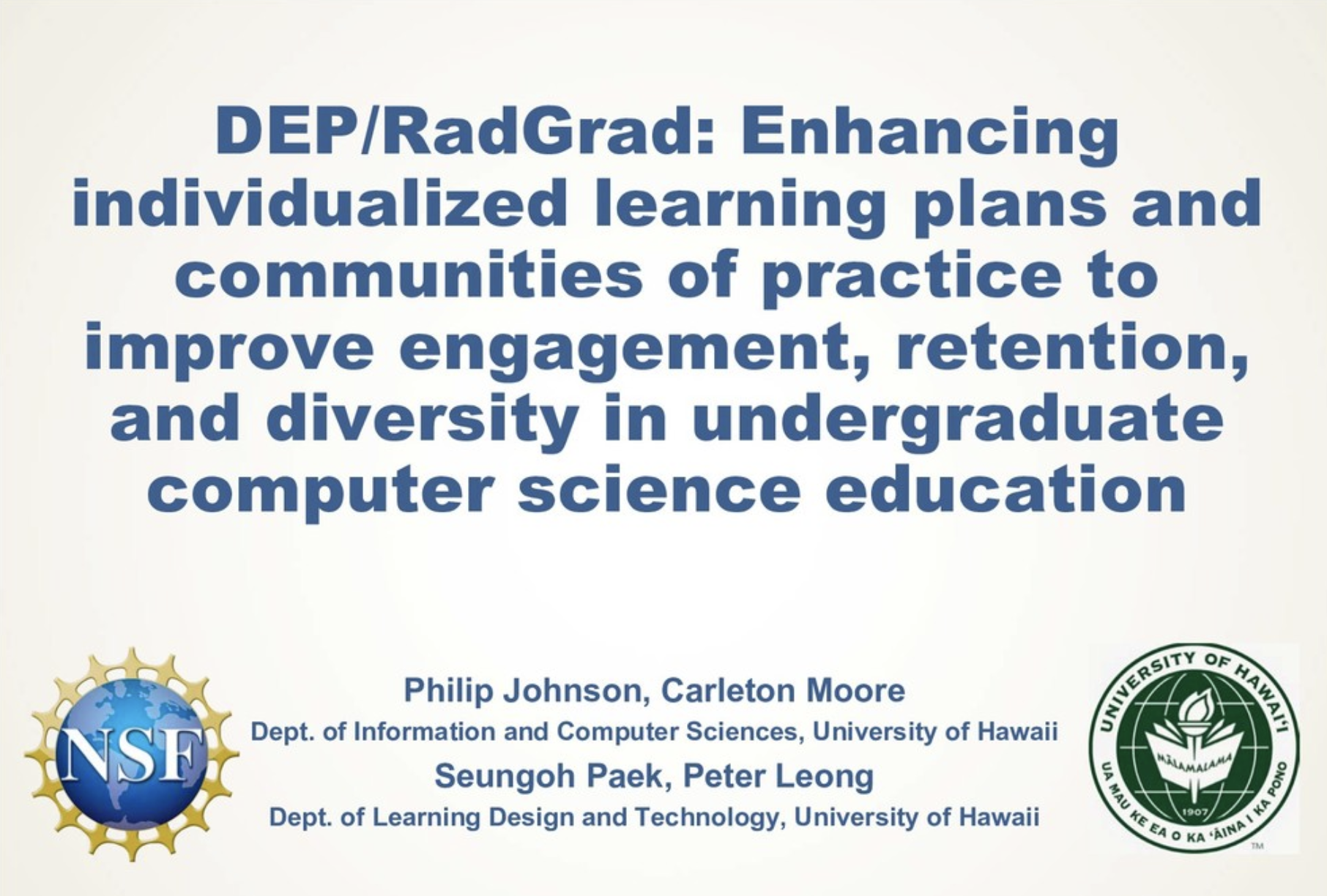RadGrad overview slides available

Philip Johnson gave an introductory presentation on the NSF-supported project to evaluate the impact of RadGrad on engagement, retention, and diversity.
Abstract: According to the US Bureau of Labor Statistics, computer science and related industries are projected to grow faster than any other over the next ten years, and US universities are not currently able to meet the projected demand. One problem is retention: fewer than 40% of students who enter college with the intention of majoring in a STEM field such as computer science actually complete the degree. Another problem is diversity: the percentage of women and underrepresented minorities in computer science is decreasing.
This project will assess a new approach to improving engagement, retention, and diversity in undergraduate computer science education. The approach has two components: a conceptual framework called "Degree Experience Plans" (DEP), and an open source software system called RadGrad for developing and managing these plans. DEP/RadGrad gives first class status to both curricular activities (courses) and extracurricular activities (discipline-oriented events, activities, clubs, etc.) To establish the first class status of extracurricular activities, DEP/RadGrad replaces GPA as the single metric for success with a three component metric called ICE that assesses student development with respect to Innovation, Competency, and Experience. Each student's Degree Experience Plan also includes a representation of their disciplinary interests and career goals that helps them assess the relevance of potential curricular and extracurricular activities. While the project focuses on computer science education, the approach may support improvements to engagement, retention, and diversity in other STEM disciplines as well.
A transcript or video of the talk is not available, but the slides can be accessed here